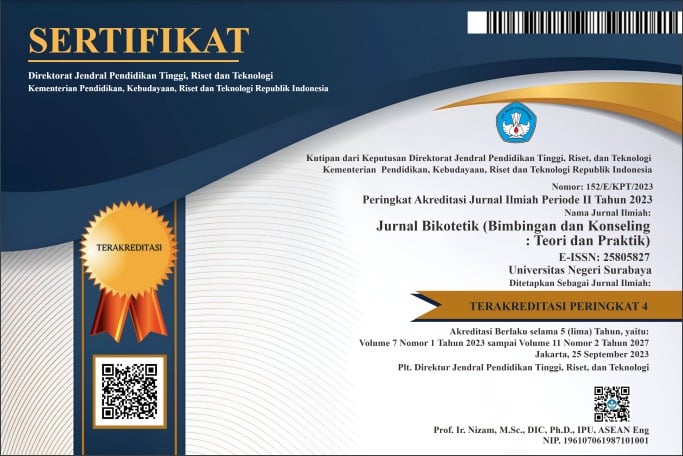ANALYSIS OF OFF-TASK BEHAVIOR IN BEHAVIORISM PERSPECTIVE
DOI:
https://doi.org/10.26740/bikotetik.v9n1.p156-163Abstract
This study is motivated by the presence of disruptive behaviors in the learning process, specifically off-task behavior. Off-task behavior refers to disruptive actions performed by students during the learning process, where they are not engaged in the lesson itself. Off-task behavior consists of three aspects: verbal, motoric, and passive. These behaviors occur due to various factors, one of which is behavior formation, a concept discussed within the behaviorism approach. This study explores effective strategies to reduce off-task behavior in classroom learning through the behaviorism approach. The results indicate that methods such as reinforcement, self-control, individual counseling with behavior contracts, sociodrama, self-control, and token economy enhance student engagement and create a productive learning environment. Implementation challenges include limited facilities and curriculum pressure. Collaboration between teachers, counselors, and the school is key to success.
Keywords: Off-task behavior, behaviorism.
Downloads
Published
How to Cite
Issue
Section
License
Copyright (c) 2025 Authors retain copyright and grant the journal the right of first publication under the Creative Commons Attribution-NonCommercial 4.0 International License (CC BY-NC 4.0). This license permits others to copy, distribute, and adapt the work for non-commercial purposes, provided the original work is properly cited.

This work is licensed under a Creative Commons Attribution-NonCommercial 4.0 International License.
 Abstract views: 312
,
Abstract views: 312
, PDF Downloads: 252
PDF Downloads: 252









